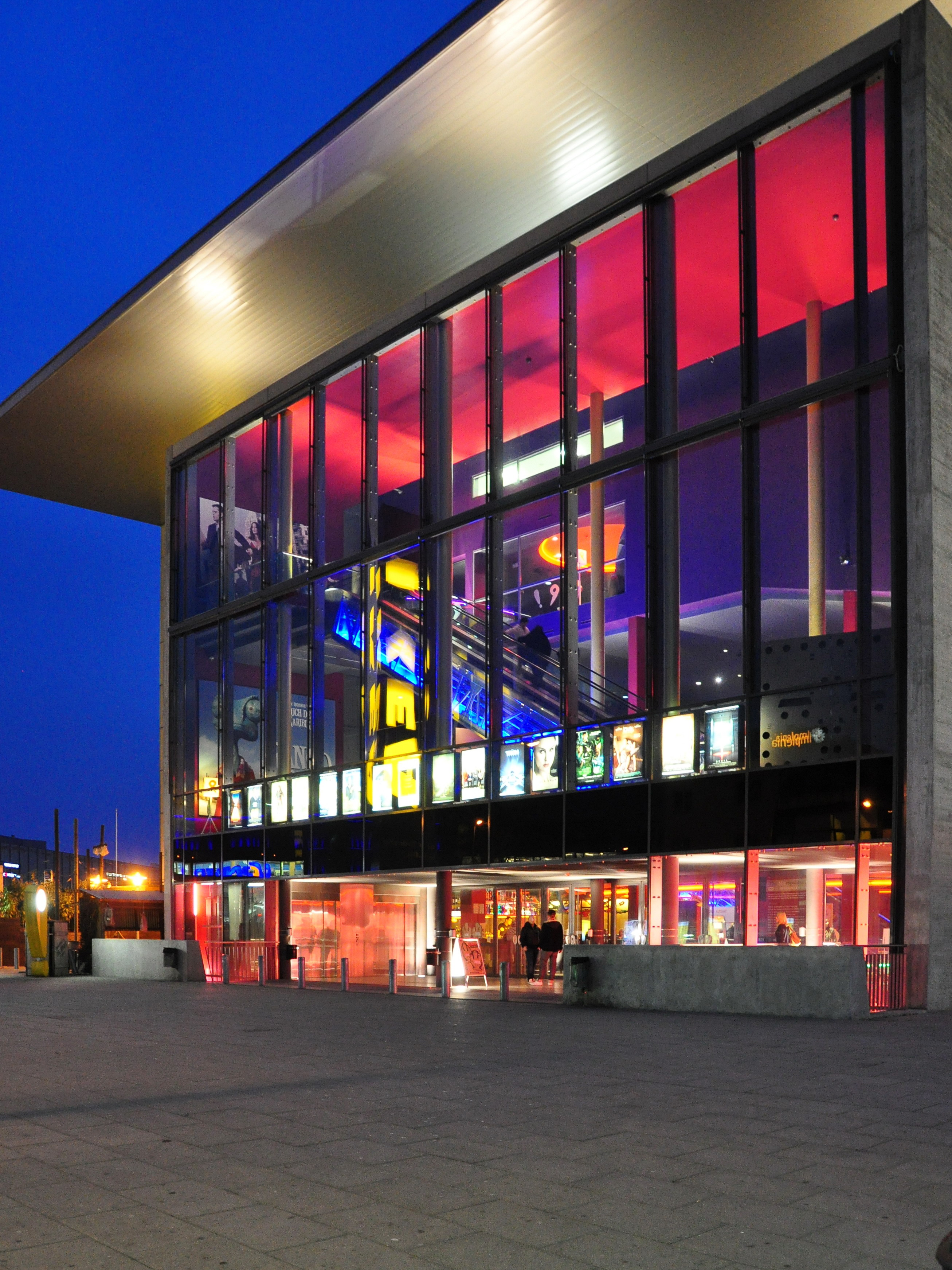|
Children's Reformatory
''Children's Reformatory'' () is a 1907 French silent short film directed by Charles Decroix, inspired by the eponymous novel by Aristide Bruant.Review and link to watch the film: Plot A young orphan is thrown out into the street by a ruthless janitor after the death of his mother. He wanders pitifully through the streets, soliciting in vain the charity of the passers-by. Driven by need, he grabs a loaf of bread from a bakery and runs away. Caught in the act of vagrancy and theft, he is sent to a penitentiary where he leads the hard life of convicts. He manages to escape and hides in a doghouse where he eats the dog's food but is soon recaptured. However, an old philanthropist takes an interest in him. He educates him and allows him to escape from definitive misery. Production and release This film was produced by the SCAGL ''( inematographic Society of Authors and Writers'', a company created in order to widen the audience of the cinema towards more cultivated and more affl ... [...More Info...] [...Related Items...] OR: [Wikipedia] [Google] [Baidu] |
Charles Decroix
Charles Decroix (born late 19th century; died after 1919) was a French director, film producer and screenwriter whose career reached a peak in Germany in the period before World War I, one of the forgotten pioneers from the early days of European cinema. Biography Early successes The son of an Alsatian shoemaker,Richard Abel, ''Encyclopedia of Early Cinema'', Routledge, New York, 2005, p. 241 Decroix joined cinematography in 1899, a field that had barely developed until then. Subsequently, he initially wrote scripts for various companies. In 1907, Decroix was hired by Pathé, for whom he directed, among other films, ''Children's Reformatory''; a Balzac adaptation of ''Les paysans''; and a short film grotesque with Max Linder, ''Une conquête''. In the spring of 1910, Decroix came to Berlin and spent the next four years shooting for German production companies. Until the outbreak of World War I, he was one of the leading filmmakers in the early days of German cinematograp ... [...More Info...] [...Related Items...] OR: [Wikipedia] [Google] [Baidu] |
Aristide Bruant
Aristide Bruant (; 6 May 1851 – 11 February 1925) was a French cabaret singer, comedian, and nightclub owner. He is best known as the man in the red scarf and black cape featured on certain famous posters by Henri de Toulouse-Lautrec. He has also been credited as the creator of the '' chanson réaliste'' musical genre. Biography Born Louis Armand Aristide Bruand in the village of Courtenay, Loiret in France, Bruant left his home in 1866 at age fifteen, following his father's death, to find employment. Making his way to the Montmartre Quarter of Paris, he hung out in the working-class bistros, where he finally was given an opportunity to show his musical talents. Although bourgeois by birth, he soon adopted the earthy language of his haunts, turning it into songs that told of the struggles of the poor. Bruant began performing at cafe-concerts and developed a singing and comedy act that led to his being signed to appear at the Le Chat Noir club. Dressed in a red shirt, bl ... [...More Info...] [...Related Items...] OR: [Wikipedia] [Google] [Baidu] |
Pathé Frères
Pathé SAS (; styled as PATHÉ!) is a French major film production and distribution company, owning a number of cinema chains through its subsidiary Pathé Cinémas and television networks across Europe. It is the name of a network of French businesses that were founded and originally run by the Pathé Brothers of France starting in 1896. In the early 1900s, Pathé became the world's largest film equipment and production company, as well as a major producer of phonograph records. In 1908, Pathé invented the newsreel that was shown in cinemas before a feature film. Pathé is the second-oldest operating film company, behind Gaumont, which was established in 1895. History The company was founded as Société Pathé Frères (; "Pathé Brothers Company") in Paris, France on 28 September 1896, by the four brothers Charles, Émile, Théophile and Jacques Pathé. During the first part of the 20th century, Pathé became the largest film equipment and production company in the ... [...More Info...] [...Related Items...] OR: [Wikipedia] [Google] [Baidu] |
Silent Film
A silent film is a film without synchronized recorded sound (or more generally, no audible dialogue). Though silent films convey narrative and emotion visually, various plot elements (such as a setting or era) or key lines of dialogue may, when necessary, be conveyed by the use of inter- title cards. The term "silent film" is something of a misnomer, as these films were almost always accompanied by live sounds. During the silent era, which existed from the mid-1890s to the late 1920s, a pianist, theater organist—or even, in larger cities, an orchestra—would play music to accompany the films. Pianists and organists would play either from sheet music, or improvisation. Sometimes a person would even narrate the inter-title cards for the audience. Though at the time the technology to synchronize sound with the film did not exist, music was seen as an essential part of the viewing experience. "Silent film" is typically used as a historical term to describe an era of cinema p ... [...More Info...] [...Related Items...] OR: [Wikipedia] [Google] [Baidu] |
Short Film
A short film is a film with a low running time. The Academy of Motion Picture Arts and Sciences (AMPAS) defines a short film as "an original motion picture that has a running time of not more than 40 minutes including all credits". Other film organizations may use different definitions, however; the Academy of Canadian Cinema and Television, for example, currently defines a short film as 45 minutes or less in the case of documentaries, and 59 minutes or less in the case of scripted narrative films (it is not made clear whether this includes closing credits). In the United States, short films were generally termed short subjects from the 1920s into the 1970s when confined to two 35 mm reels or less, and featurettes for a film of three or four reels. "Short" was an abbreviation for either term. The increasingly rare industry term "short subject" carries more of an assumption that the film is shown as part of a presentation along with a feature film. Short films are often s ... [...More Info...] [...Related Items...] OR: [Wikipedia] [Google] [Baidu] |
Charles Pathé
Charles Morand Pathé (; 26 December 1863 – 25 December 1957) was a pioneer of the French film and recording industries. As the founder of Pathé, Pathé Frères, its roots lie in 1896 Paris, France, when Pathé and his brothers pioneered the development of the moving image. Pathé adopted the Gallic rooster, national emblem of France, the Gallic rooster, cockerel, as the trademark for his company. The firm, as Compagnie Générale des Éstablissements Pathé Frères Phonographes & Cinématographes, invented the cinema newsreel with ''Pathé-Journal''. Early life The son of a butcher shop owner, Charles Morand Pathé was born at Chevry-Cossigny, in the Seine-et-Marne ''département in France, département'' of France. His father, Jacques Pathé and mother, Thérèse-Émélie Kech were butchers by trade, and ran a delicatessen first in Chevry-Cossigny, and later in Vincennes. Charles had three brothers and two sisters. Business ventures Pathé left school at 14 to work as ... [...More Info...] [...Related Items...] OR: [Wikipedia] [Google] [Baidu] |
Pathé
Pathé SAS (; styled as PATHÉ!) is a French major film production and distribution company, owning a number of cinema chains through its subsidiary Pathé Cinémas and television networks across Europe. It is the name of a network of French businesses that were founded and originally run by the Pathé Brothers of France starting in 1896. In the early 1900s, Pathé became the world's largest film equipment and production company, as well as a major producer of phonograph records. In 1908, Pathé invented the newsreel that was shown in cinemas before a feature film. Pathé is the second-oldest operating film company, behind Gaumont, which was established in 1895. History The company was founded as Société Pathé Frères (; "Pathé Brothers Company") in Paris, France on 28 September 1896, by the four brothers Charles, Émile, Théophile and Jacques Pathé. During the first part of the 20th century, Pathé became the largest film equipment and production company in the ... [...More Info...] [...Related Items...] OR: [Wikipedia] [Google] [Baidu] |
Lyon
Lyon (Franco-Provençal: ''Liyon'') is a city in France. It is located at the confluence of the rivers Rhône and Saône, to the northwest of the French Alps, southeast of Paris, north of Marseille, southwest of Geneva, Switzerland, northeast of Saint-Étienne. The City of Lyon is the List of communes in France with over 20,000 inhabitants, third-largest city in France with a population of 522,250 at the Jan. 2021 census within its small municipal territory of , but together with its suburbs and exurbs the Lyon Functional area (France), metropolitan area had a population of 2,308,818 that same year, the second largest in France. Lyon and 58 suburban municipalities have formed since 2015 the Lyon Metropolis, Metropolis of Lyon, a directly elected metropolitan authority now in charge of most urban issues, with a population of 1,424,069 in 2021. Lyon is the Prefectures in France, prefecture of the Auvergne-Rhône-Alpes Regions of France, region and seat of the Departmental co ... [...More Info...] [...Related Items...] OR: [Wikipedia] [Google] [Baidu] |
1907 Films
The year 1907 in film involved some significant events. __TOC__ Events * January 19 – '' Variety'' publishes its first film review. * The Kalem Company founded in New York City by Frank J. Marion, Samuel Long, and George Kleine. * May 7 – Seattle film maker William Harbeck sets up a camera at the front of a B.C. Electric streetcar and films the downtown streets of Vancouver, British Columbia. Pieces of the film, the earliest surviving footage of the city, have disappeared, only about 7 minutes remain. * May 29 – '' Salaviinanpolttajat'', also known as ''The Moonshiners'', the first fictional film made in Finland, is released. * June 20 – '' L'Enfant prodigue'', the first feature-length motion picture produced in Europe, opens in Paris. * Peerless Film Manufacturing Company was founded in Chicago by George K. Spoor and Gilbert M. Anderson. On August 10, the studio name was changed to Essanay Studios ("S and A"). * November 28 - In Haverhill, Massachusetts, scrap-me ... [...More Info...] [...Related Items...] OR: [Wikipedia] [Google] [Baidu] |
French Silent Short Films
French may refer to: * Something of, from, or related to France ** French language, which originated in France ** French people, a nation and ethnic group ** French cuisine, cooking traditions and practices Arts and media * The French (band), a British rock band * "French" (episode), a live-action episode of ''The Super Mario Bros. Super Show!'' * ''Française'' (film), a 2008 film * French Stewart (born 1964), American actor Other uses * French (surname), a surname (including a list of people with the name) * French (tunic), a type of military jacket or tunic * French's, an American brand of mustard condiment * French (catheter scale), a unit of measurement * French Defence, a chess opening * French kiss, a type of kiss See also * France (other) * Franch, a surname * French Revolution (other) * French River (other), several rivers and other places * Frenching (other) * Justice French (other) Justice French may refer to: * C. G ... [...More Info...] [...Related Items...] OR: [Wikipedia] [Google] [Baidu] |




